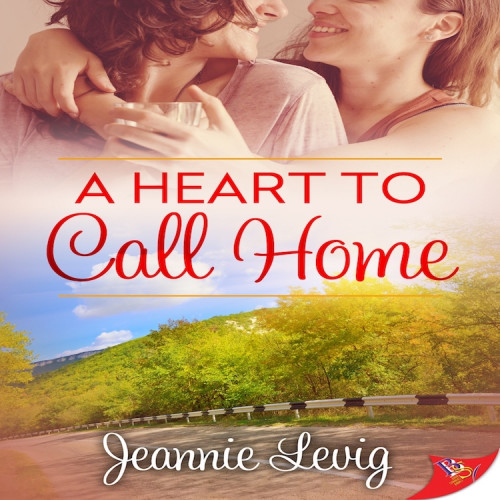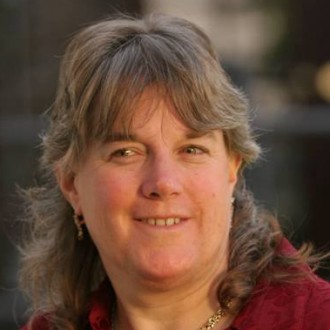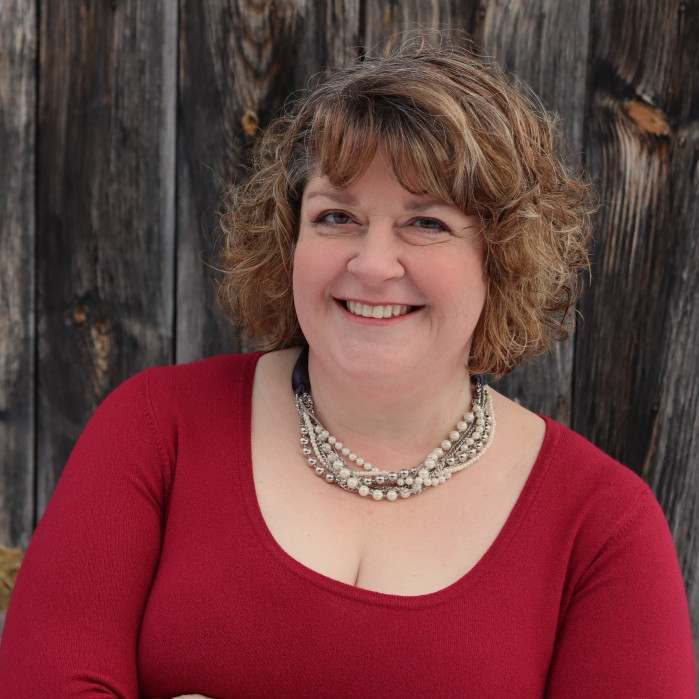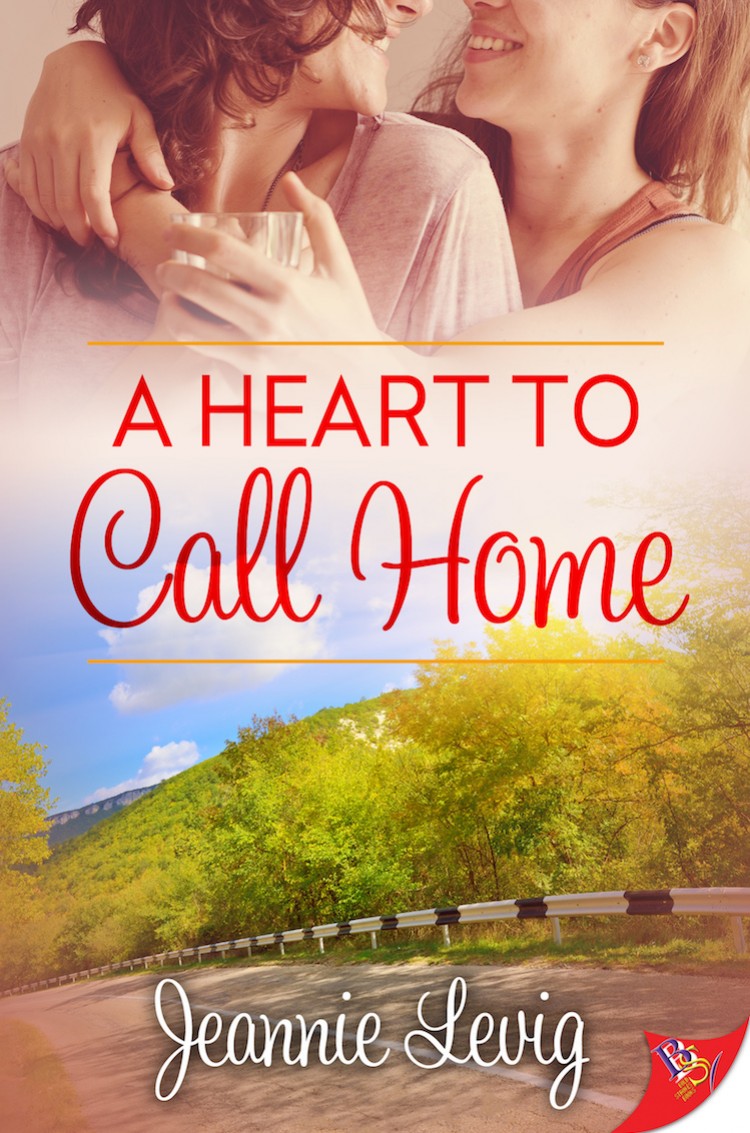Aurora Rey interviews Jeannie Levig:
Your newest book, A Heart to Call Home, has just come out. Congratulations!
Thank you, Aurora, and thank you for helping me to get the word out and chat about it for a while. It’s always fun to promote a new book.
The two protagonists of the story—Dakota and Jessie—have a lot of demons to face. Would you say giving your characters difficult pasts is a hallmark of your writing?
It seems to be. All of the characters in all four of my books have either something difficult to deal with from the past or are dealing with something difficult in the present—usually both, since unresolved issues from the past do shape our present. Having this as a hallmark of my writing, however, isn’t something I set out to do in advance. It’s just that when characters show up in front of me and tell me their stories to write, by the time I’m finished, either with a full book or with the proposal for one, there are usually demons and baggage to deal with.
When Dakota and Jessie’s story came through, it was interesting to me that the backstories that held all the demons for each of them were also so tightly linked through a shared tragic incident. That was the unusual aspect of A Heart to Call Home, and I think that aspect of the book added a more intimate feel to Dakota and Jessie’s connection even before they became intimate in the usual ways.
You also tackle mental illness and the impact it can have on families. Was that part of Dakota’s overall character development or is it an issue you especially wanted to explore?
The impact Dakota’s mother’s mental illness had on her, her childhood, and her family was a part of her character development more so than anything else. It plays a large role in who Dakota is, not who she pretends to be and in the public mask she wears, but who she really is deep down, and it’s partially what gives her the vulnerability needed in order for Jessie to fall in love with her.
I’ve had several friends in my life who have had parents or other family members who have been diagnosed with schizophrenia, and I think it would be a challenging element to take on in a main character, one I might explore someday in another book. It wasn’t, however, what A Heart to Call Home is about, so I kept it in the backstory and with a secondary character.
Your first two books won some pretty big awards—a 2016 Goldie for Debut Author (Threads of the Heart) and a 2017 Rainbow Award for Contemporary Romance (Embracing the Dawn). Does that give you confidence as you begin new projects, or do you feel like there’s a lot to live up to?
Yes! Both. This question brings up quite a mixed bag of emotions. Certainly, my first two books winning awards provides a hefty confidence boost in any regard. I’m very much aware, based on the many, many outstanding books I’ve read that never won an award, that awards aren’t everything, but they definitely feel good when you get them. The Goldie for Threads of the Heart came as quite a surprise, since that book in particular got off to a bit of a shaky start, due to what we discussed in your first question. My characters do tend to have demons to face, whether it be from the past or in the present. Threads isn’t a traditional romance, but a work of general lesbian fiction that follows three couples in various stages of relationship, and there is one character in Threads who wasn’t very popular with some reviewers due to her and her long-term partner’s navigation through an infidelity story line. So when the finalists for the Debut Author category were announced and then Threads won, I was pretty astounded.
For me, though, it’s hearing from readers about how my books make them feel and how they were impacted by them that’s the real confidence builder. There’s nothing like the feeling I get when a reader writes to me or meets me at a conference and shares that something I wrote made them think differently or helped them heal something within them, or just made them laugh out loud. Those are the moments that really make a difference.
As for the second part of your question: Yes, having won awards for my first two books can sometimes make me feel as though I have a lot to live up to with subsequent stories, if I let myself go there. I try not to, though. One of the biggest things I’ve learned as a writer so far—mostly from writing my third book, Into Thin Air—is that I have to write what comes through me. As a writer yourself, I’m sure you know that feeling of what story is yours to write, and even when I know a story is going to be difficult and might not be understood by everyone, it’s still my job to write it. Knowing that helps me stay focused, and I can forget about any self-imposed pressure about it being like or as good as any other.
Can you tell us a little bit about your writing process? Is it always the same or do you mix it up?
It’s usually the same. I almost always write in sequence. By that I mean I start at the beginning and write the scenes in order as they come in the telling of the story. Every once in a long while a scene might come to me out of order, and I will take the time to go ahead and write that scene if, for some reason, I think I might lose something of significance if I wait, but usually I can hold the scene in my head until it’s time for it. I am always a little astonished when I talk to writers who say they write all kinds of different scenes and then put them together into a book. The mere thought of that overwhelms me and makes my head ache.
I am also perplexed by writers who say they write the whole first draft before they go back and do any editing at all. I’ve tried to do that, and I literally can’t. The most I seem to be able to write without going back and doing any editing is about ten pages. The bright side of that is that by the time I am finished with the manuscript, I don’t find that I have to do much rewriting before sending it to my editor. Now, once my editor gets it, that might be an entirely different story J.
How does inspiration hit you? Do you come up with characters first, or is it a plot or setting that gets you going?
Usually, characters will show up in my mind first and then proceed to tell me their stories. All of my work, even short stories, is character driven, so it only makes sense that they would make themselves known before anything else. There have been times that a scene will enter into the initial inspiration or development of a book. For example, with Embracing the Dawn, the very first thing that came to me was a scene the morning after a one-night stand in which the two women who have just slept together and plan to never see one another again realize that the son of one of them is marrying the niece of the other the very next day. That scene ended up being the opening of Embracing the Dawn, even though initially, I had no information about the characters or the overall story. There was a character that was already in my mind that I wanted to write that was very loosely based on a woman I had met, and that character ended up being Jinx. So in that circumstance, the overall inspiration was a combination of two elements.
The idea for Into Thin Air came one day in the form of a question: What would happen if someone’s girlfriend disappeared one day and over the course of time and looking for her, she and her vanished girlfriend’s best friend fall in love, and then the girlfriend comes back? That story idea became even more complex when I had to figure out why the girlfriend disappeared and where she was, but usually once I have the initial seed of a story, the rest comes.
You published a great blog on your website last November called “Channeling Creations.” You liken writing—or creating in general—to parenting. How has that revelation shaped your creative process?
Thank you, I am glad you enjoyed the blog.
I am not sure that it’s shaped my creative process, because I’ve always felt that both stories and children come through the writer/parent as opposed to being created by them. What that revelation has been more significant in shaping is how I feel about readers’ reactions to my books. In the blog I explore the idea that my job as a writer is to write the story, then send it out into the world to touch and impact its readers in whatever way it is relevant to them. It isn’t my job to play a part in that. That revelation has allowed me to better let go of a story and not take what someone might think of it personally.
If anyone would like to read the blog, you can find it on my website www.Jeannielevig.com.
What are you working on now?
I am working on a contemporary romance entitled A Wish Upon a Star that is scheduled for release from Bold Strokes Books in December of this year. The story centers around two women, of course, who meet when one moves in next door to the other. Leslie Raymond has moved back to the Los Angeles area where she grew up in order to escape the painful loss of the little boy she had helped parent since his birth. When his mother left Leslie for a relationship with a man, Leslie was denied all contact with her son. Erica Cooper and her seven year old daughter who has Autism Spectrum Disorder are her new neighbors and make it difficult for Leslie to keep her vow to never get involved with a woman who has a child again. Erica has her own relationship issues stemming from the demands of raising a special needs child alone after her ex-husband walked out on them.
Any advice for aspiring writers out there?
My advice for aspiring writers is to write because if you’re not writing, you’re not a writer, and if you’re not a writer, you can never become a published writer.
And that, ironically, brings up my second—and even though it’s second, my more important— piece of advice for aspiring writers: never write anything for the sole purpose of trying to sell it. Write from your heart. Write because there is a story in you that has to be told. Write because a story is coming through, occupying your attention, the characters waking you up at night. Write because it’s fun, because you lose track of time while you’re doing it, because it fills a space in you nothing else does. Write because it drives your spouse crazy—well, maybe not if that’s the only reason you’re writing, but you know what I mean, don’t you? Maybe I should say write even though it drives your spouse crazy because writing is about you, about answering a call from deep within, about your creative self-expression. Write because you love it!
If you need to learn some grammar along the way, fine. If you need to find some other writers for support, do it. If you need a critique group for feedback, great. But do all this while you’re writing something you love because that is the writing that ultimately will sell. I’ve read writing, even written some, that is technically perfect and squeaky clean, that was written exactly to fit a particular line or call for submissions, yet it never sold. At the same time, I’ve read stories written by authors whose grammatical errors were off the chart or that didn’t fit a publisher’s guidelines, but the publisher took the time to write some encouraging words and invite the author to try again because the story had heart, because the writer’s love for it could be felt. And in some cases, the next time around, a contract was offered. You do always want to send out your very best work. If you know your grammatical skills need help, take a class or hire an editor to go through it, or if you’re writing a novel or short story, take the time to learn the elements of fiction, but ultimately, when beginning a story, check your motivation, your come-from place, if you will. Write from your heart because that’s the writing that says what needs to be said.
When you’re not writing, what do you do for fun?
I read a lot, a lot, a lot…I enjoy movies, although I don’t get the chance to see as many as I used to or would like to. I enjoy time with friends and family.
This is becoming a signature feature of my author interviews, so I hope you’ll indulge me. I’m going to ask the Pivot Questions (i.e., pretend I’m James Lipton on Inside the Actors Studio). So here goes…
- What is your favorite word?
- I love the word kerfuffle simply because it is fun to say!
- What is your least favorite word?
- No, because I hate being told no.
- What turns you on?
- Chocolate, potato chips and onion dip, BDSM novels, romantic comedy movies, and reading in general.
- What turns you off?
- Being told no, inauthenticity, being too hot or too cold, and anything that becomes a have-to.
- What sound or noise do you love?
- The sound of flowing or lapping water and waves breaking on the beach.
- What sound or noise do you hate?
- Things like blenders and coffee bean grinders or anything that makes a harsh noise like that. They make me cringe and grind my teeth.
- What is your favorite curse word?
- I’ve thought about this question a lot, and I really have to say I don’t think I have one.
- What profession other than your own would you like to attempt?
- Musician. I feel like I must have been a professional musician in a past life because I am so drawn to the idea and the fantasy of performing musically on stage, but I really don’t know how to play a single musical instrument.
- What profession would you not like to do?
- Astronaut, because the thought of being in such a confined space in addition to being a billion miles up in the air is just too much.
- If heaven exists, what would you like to hear God say when you arrive at the pearly gates?
- “You did well.”



